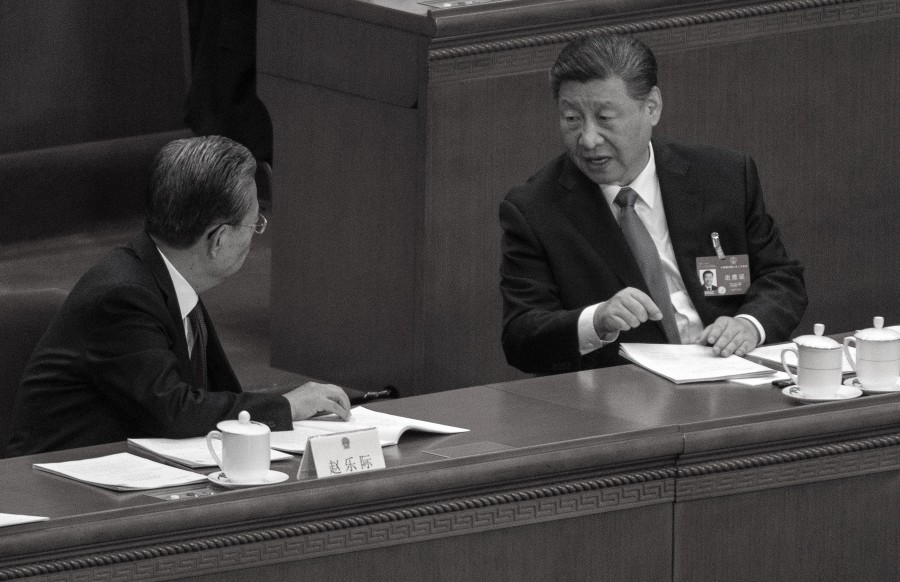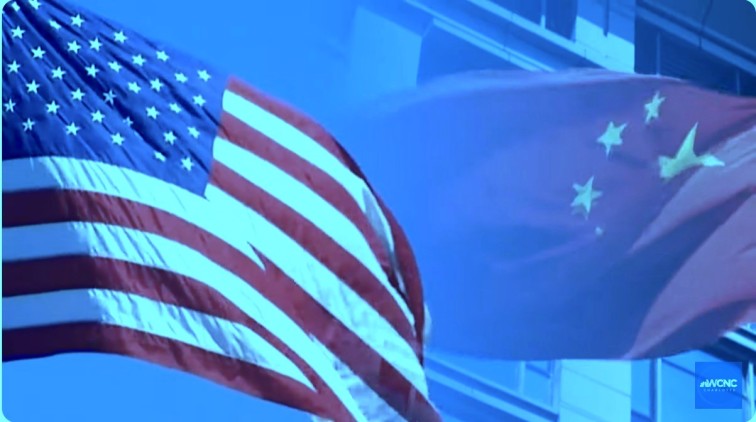FILE PHOTO: Chinese President Xi Jinping
[People News] After the conclusion of the 20th Central Committee’s Fourth Plenary Session of the Chinese Communist Party (CCP), the political situation remains turbulent beneath the surface, and outside observers predict that infighting within the CCP’s top ranks will intensify. Recently, a veteran journalist made three predictions about Xi Jinping’s downfall. Some public opinion also suggests that Xi has already lost control of the Party, government, and military at the Fourth Plenary Session. Experts on Chinese affairs point out that regardless of which scenario occurs, the question is how China will move forward after Xi’s fall—and that the CCP itself cannot remain.
Three Predictions About Xi Jinping’s Fall
According to The EDajiyuan, veteran journalist Akio Yaita recently made three predictions regarding Xi Jinping’s potential downfall:
-
Health problems;
-
Assassination;
-
Popular uprising combined with anti-Xi forces.
Yaita said that Xi has indeed been having health issues recently, evidenced by phenomena such as having two cups on his table during meetings (one for water and one for herbal medicine), disappearing from public view for weeks at a time, and possibly having undergone surgery. Yaita noted that although Xi wants to “live to 150 years old,” his health is not very good—he is in a sub-healthy state.
The second scenario for Xi’s fall would be assassination. Yaita believes that since Xi took power, many people have found it hard to survive, especially as the military has undergone repeated purges. There are many within the army who want to assassinate Xi. Therefore, Xi is particularly cautious—for example, when visiting South Africa, he brought hundreds of people to replace hotel staff, and when flying home, he detoured through Xinjiang and took a train back to Beijing. But “you can’t guard against thieves for a thousand days”—someone may eventually succeed.
The third scenario combines popular revolt with anti-Xi factions. Yaita said that Chinese society is now in dire straits, full of resentment. The “White Paper Revolution” a few years ago already showed signs of an uprising. As the economy declines, various voices will emerge, and with frequent mass incidents in China, if these demands converge (as in Romania), and if anti-Xi forces within the Party seize the moment to defect, a major political change will occur.
However, Yaita believes that Xi’s current position remains solid.
Shen Mingshi, a researcher at Taiwan’s Institute for National Defense and Security Research, told The EDajiyuan that there are indeed many abnormal phenomena within the CCP’s Party and military, reflecting a crisis in the regime’s rule, though the CCP has consistently concealed such problems.
He believes Xi’s power will likely continue until 2027, at which point it will become clear whether there will be a successor. The only variable in the meantime is the military. “There are conflicts between Xi Jinping and Zhang Youxia. With so many top general positions vacant, will a new batch be promoted? Are these people loyal to Zhang Youxia or to Xi Jinping? This will be the main indicator of who really holds military power.”
Has Xi Already Lost Control of the Party, Government, and Military?
However, according to EDajiyuan Focus video reports, there is also an opinion that goes beyond most political commentators’ analysis—claiming that Xi actually lost control of the Party, government, and military at the Fourth Plenary Session. The Party elders, in order to preserve the CCP, have concealed the truth from the outside world, “dressing up” Xi as a mere “mascot,” while the real top powers of the Party, state, and military are being exercised by others.
One of the bases for this theory is an insider revelation from within China.
The leak revealed that on the morning of October 23, Wen Jiabao, on behalf of the Party Central Committee’s decision-making coordination body, gave a speech and conveyed a message from Hu Jintao, issuing instructions to the Central Committee members and alternate members. Zhang Youxia, representing the military, declared that the armed forces would safeguard the policy of reform and opening up.
On the afternoon of October 23, the Central Committee plenary session made a collective decision agreeing that Xi Jinping would resign as General Secretary of the CCP, to be temporarily replaced by Wang Yang until the 21st Party Congress; it also agreed that Xi would resign as Chairman of the Central Military Commission, with Liu Yuan acting as interim chair until the 21st Congress. The collective resignation of all Politburo members would not be accepted for the time being, with a full adjustment postponed until the 21st Congress. Hereafter, documents addressed to the General Secretary of the Central Committee would be handled directly by Wang Yang, and those to the Central Military Commission by Liu Yuan. Xi would temporarily enjoy treatment equivalent to that of Hua Guofeng and follow Wen Jiabao’s arrangements.
The CCP Cannot Remain
China expert Wang He told The EDajiyuan that Xi Jinping’s downfall—regardless of the scenario—will inevitably involve the question of China’s future direction. In the past, some held the view that the Communist Party could be abolished and replaced by a Democratic Party of China, or that the CCP could be reformed. But such voices disappeared after Xi came to power, because people realized that the CCP’s crimes are so vast that it can no longer continue to exist.
Wang He stated that after Xi’s fall, the Chinese people face only two paths:
“If some within the CCP are wise enough, they will follow the Soviet model—peaceful disintegration and the abolition of the CCP. If extremists take power, China will follow the Romanian model, where the dictator is captured and executed. There is no third way between these two models; it is impossible to preserve the CCP regime or maintain the status quo.”
Wang emphasized that to achieve peaceful transformation, China must rebuild civilization and morality. The conditions already exist, thanks to the massive ‘Three Withdrawals’ (quitting the Party, Youth League, and Young Pioneers) movement over the past 20 years. “Completely withdraw from the CCP. Rebuild Chinese society with traditional culture at its core, reconstruct the political and economic systems, and then rejoin the international community. This is China’s best choice.”△











News magazine bootstrap themes!
I like this themes, fast loading and look profesional
Thank you Carlos!
You're welcome!
Please support me with give positive rating!
Yes Sure!